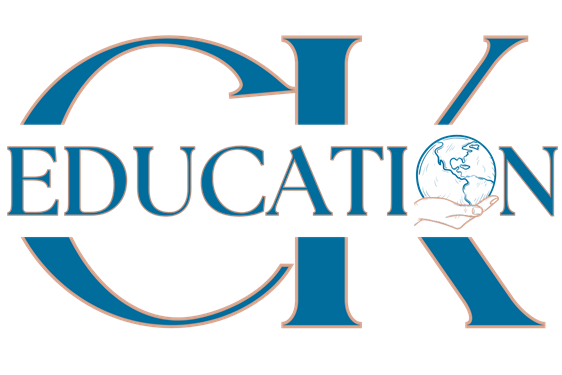Ontario Curriculum Connections and Guiding Framework
Jewish Immigration to Canada and the Holocaust
The Grade 6 social studies curriculum has been updated to include learning about the Holocaust, to help younger students gain a deeper understanding of its significance and combat rising cases of antisemitism in schools. Students will:
- develop a deeper understanding of the significance of the Holocaust starting in Grade 6
- learn about the experiences of Jewish individuals, families and communities within Canada and the ongoing impact of antisemitism
- learn about the responses of the Canadian government to the Holocaust and the development of Canada’s responses to acts of hate and human rights violations after World War II.
Source: https://www.dcp.edu.gov.on.ca/en/sshg-guide/about
Citizenship Education Framework
- Active Participation (Work for the common good in local, national, and global communities)
- voting, decision-making, conflict resolution, advocacy, leadership, volunteering
- Identity (A sense of personal identity as a member of various communities)
- interconnectedness, beliefs, culture, perspective, community, relationships
- Attributes (Character traits, values, habits of mind)
- inclusiveness, equity, empathy, respect, rights and responsibilities, freedom, justice, fairness, truth, citizenship, social cohesion, collaboration and cooperation)
- Structures (Power and systems within societies)
- democracy, self-determination, rules and law, institutions, power/authority, security, systems
*New* Ontario Curriculum Expectations
Expectation A3.7
- describe significant events or developments in the history of Jewish communities in Canada, including some of the ways they have contributed to Canada (e.g., events and developments: official recording of the first Jewish settler in New France [1759]; establishment of Canada’s first synagogue, Shearith Israel, in Montreal [1768]; equal rights being given to Jewish people in Lower Canada [Quebec], including being able to hold public office [1832]; founding of Canada’s first national Jewish organization, the Federation of Zionist Societies in Canada [1899]; establishment of Montreal’s Young Men’s Hebrew Association and Young Women’s Hebrew Association [1910]; founding of the Canadian Jewish Congress [1919]; waves of Jewish immigration during the twentieth and twenty-first centuries from Europe, Asia, South America, and North and South Africa, increasing the diversity of Canada’s Jewish community; dedication of the National Holocaust Monument in Ottawa [2017]; Special Envoy on Preserving Holocaust Remembrance and Combatting Antisemitism role created [2020]; contributions: leaders in human rights laws since the 1940s; entrepreneurs in industry and manufacturing),
- and identify some of the impacts of antisemitism on these communities’ development and/or identities (e.g., restrictions: pre–World War II restrictions on participation in medicine and law; severe restrictions on Jewish immigration during World War II and up to 1947; prohibition of Jewish residences or property purchases in some Canadian neighbourhoods; reactions: building of Toronto’s Mount Sinai Hospital [1923] to serve the Jewish immigrant community and provide space for Jewish doctors who faced discrimination at other hospitals; resistance to antisemitism during the Christie Pits Riot in Toronto [1933]; building of the Jewish Community Centre in Toronto [1953] in response to not being allowed to join many of the existing clubs in the city; security at synagogues and cemeteries)
- Sample questions
- In what ways have Jewish individuals and communities contributed to Canadian war efforts and to democracy in Canada?
- How did Jewish communities and individuals help Holocaust survivors and orphans integrate and rebuild their lives in Canada?
- How have Holocaust survivors contributed to Canadian society? How did Holocaust survivors integrate and rebuild their lives in Canada?
- How have members of Jewish communities worked with and continue to work with other individuals and communities to address racism within Canada more broadly?
- How have Jewish Canadians contributed to the Canadian arts and sports communities?
- How have Jewish communities and/or individuals contributed to the political, economic, professional, academic, and cultural development of Canada?What is the significance of the adoption of Jewish Heritage Month by the federal and provincial governments?
Source: www.dcp.edu.gov.on.ca/en/curriculum/elementary-sshg/grades/g6-ss/a/a3
Expectation B3.5
- describe the responses of the Canadian government to human rights violations during the Holocaust (e.g., severe restrictions on immigration and the policy of “none is too many”; the turning away of the MS St. Louis; Canada’s policy to vastly restrict the number of Jewish refugees admitted from Europe, as shown by the response to the Evian Conference [1938])
- and the impact that global changes in understanding and legislation around human rights since World War II have had on the development of Canada’s responses to acts of hate and human rights violations (e.g., Canada’s participation in the writing of the Universal Declaration of Human Rights [1948]; three sections related to genocide and hate crimes added to the Criminal Code of Canada; Canada’s response to the Vietnamese refugee crisis in the years following the war in Vietnam; the drafting of the Canadian Charter of Rights and Freedoms [1982]; the creation of the Canadian Multiculturalism Act [1988]; amendments to the Indian Act; boycotts of South Africa during apartheid; Canada’s Extradition Act [1999]; Canada’s adoption of the Justice for Victims of Corrupt Foreign Officials Act [2017], the Magnitsky legislation that allows sanctions to be placed on human rights abusers who are foreign nationals; government initiatives in response to the Truth and Reconciliation Commission’s Calls to Action [2015]; the criminalization of Holocaust denial in Bill C-19 [2022]; sending in observers and peacekeepers; responses to humanitarian crises internationally; the decriminalization of homosexuality)
- Sample questions
- What were the significance and effect of Canada’s actions regarding the immigration of Jews to Canada during World War II? How did these actions and attitudes change in terms of their patterns and trends in the post–World War II years?
- What events and international occurrences led to the Universal Declaration of Human Rights (1948)? How have Canada and Canadian law and culture been impacted by this declaration?
- What are some ways in which antisemitism has affected, and continues to affect, Jewish individuals and communities in Canada? How are Jewish individuals and community groups continuing to fight against antisemitism?
- What are some ways in which individuals, communities, and governments in Canada can counter antisemitism and acts of hate?
Source: www.dcp.edu.gov.on.ca/en/curriculum/elementary-sshg/grades/g6-ss/b/b3
